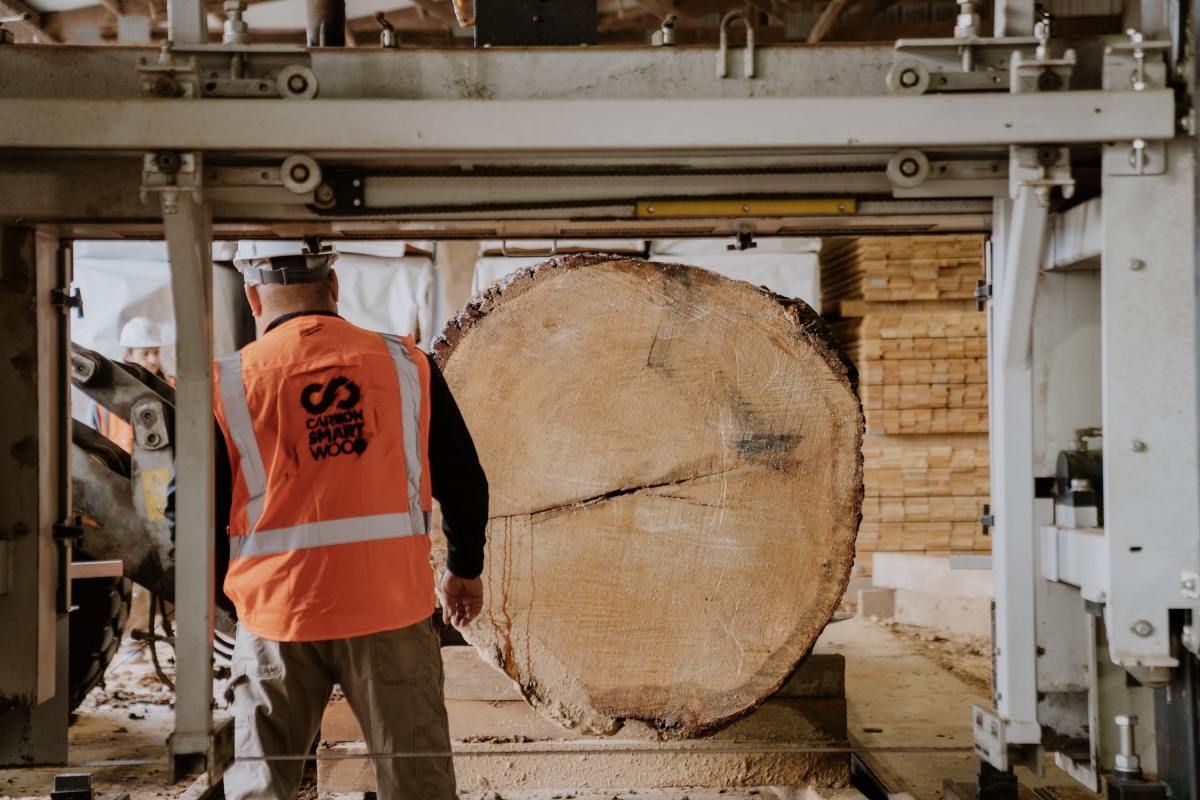Transforming Waste Wood into Usable Lumber: Cambium’s Innovative AI Revolution
Across cities and suburbs in the United States, a troubling trend emerges: trees are felled, yet their potential as sustainable lumber often goes to waste. This issue is a significant concern for many, including Ben Christensen, who has a deep-rooted appreciation for trees and timber.
The Problem of Wasted Wood
Ben Christensen, raised in New Mexico amidst its magnificent pines, is not just a tree enthusiast; he comes from a family with a rich history in the timber industry. His father is a skilled carpenter and woodworker, which further fuels Christensen’s dedication to sustainable logging practices.
According to Christensen, the primary reason for the waste of wood is a lack of coordination among tree care services. He explains, “If you’re a tree care service, you’re incentivized to get to your next booking.” This often leads to logs being sent to the chipper instead of being repurposed.
Cambium: A Solution for Sustainable Timber Management
Recognizing an opportunity in the wasteful practices of the timber industry, Christensen, along with Marisa Repka and Theo Hooker, founded Cambium. This innovative startup focuses on reusing wood that would otherwise be discarded, leveraging software to streamline and connect various segments of the supply chain.
How Cambium Works
Cambium’s core proposition is to facilitate better transactions in the timber market. The company’s platform aids businesses in buying or selling wood more efficiently, thereby ensuring:
- Improved service delivery
- Long-term contracts
To further enhance its offerings, Cambium develops its own products, ensuring consistency from traditionally inconsistent wood sources. The company collaborates with suppliers and mills to create products that are then sold to prominent companies such as Room and Board and Steelcase.
Innovative Products from Salvaged Wood
In addition to furniture-grade lumber, Cambium specializes in producing cross-laminated timber—an engineered wood product formed into panels. This initiative is backed by partnerships with manufacturers like Mercer Mass Timber, SmartLam, Sterling Structural, and Vaagen Timbers.
The Environmental Impact of Using Salvaged Wood
Utilizing salvaged wood is not just a lucrative business model; it also presents significant environmental benefits. Christensen emphasizes the importance of minimizing transportation distances, stating, “Every time you move wood ten miles instead of 1,000, there’s a real carbon benefit.” Keeping trees alive in forests also contributes positively to carbon sequestration.
Navigating a Fragmented Timber Industry
The timber market is predominantly controlled by a few large companies, yet it remains fragmented overall. According to Christensen, “It generally takes eight to ten businesses to get material to an end customer.” Cambium addresses this challenge with its software, which aids about 350 entities, including tree care services and sawmills, in digitizing their operations.
Focusing on Business Opportunities
Cambium appeals to its clients by emphasizing business opportunities rather than merely the software itself. Christensen shares an anecdote about how his uncle, a traditional wood seller, would respond much better to an offer of “40,000 board-feet of four-quarter white oak” than to a pitch about software.
Data-Driven Insights for the Timber Industry
By gaining insights into transactions throughout the timber value chain, Cambium collects valuable data that can drive improvements in operations. This data is instrumental in developing an AI system aimed at helping traditional businesses, like Christensen’s uncle’s, transition to digital record-keeping.
Funding and Future Developments
To expand its platform and enhance its models, Cambium recently raised $18.5 million, led by VoLo Earth Ventures. Other notable investors include Alumni Ventures and NEA.
Christensen envisions a future where Cambium can modify how customers maintain their records without altering their operational habits. The goal is to utilize AI to extract information from communications and streamline data entry processes.
“If you’re driving a truck, you’re not on a laptop,” Christensen points out, stressing the importance of accessibility in information delivery. “You want to get a text, you want to get a voice call.” Cambium aims to simplify the integration of technology into the timber industry while enhancing sustainability and efficiency.







